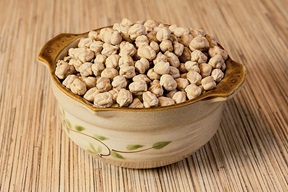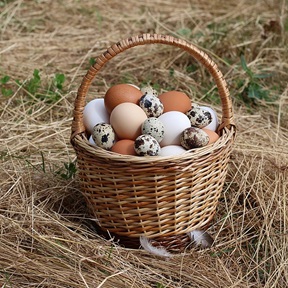Recently, the Dutch site change.inc devoted attention to progress in the production of artificial eggs. Consisting of a number of compounds that approach the natural egg. But then of course, of vegetal origin. Eggs without the chicken, can it be done?

Eggs without the chicken
In the kitchen, eggs are important as a binding agent and a taste enhancer. Essential, so it would seem, in products like cake. But on internet, we can easily find recipes that have the same result with vegetal ingredients. Like cake without eggs and recipes with egg substitutes. Where there’s a will, there is a way. But now, eggs without the chicken come to the market.
One of the companies doing research in this field is the Dutch company Kipster. A company that for years devoted itself to sustainable chicken farming. The chicken roam around in an environment that is natural to them; they are being fed with supermarket side streams like stale bread. Energy is being supplied to the farm by solar panels. But now, Kipster also ventures into the realm of vegetal eggs – eggs without the chicken.

Egg substitutes
Kipster sells two types of egg substitutes under the name of Veggs. A mix, for making omelettes. And a variation packed in an egg box. According to co-initiator Ruud Zanders, the result is about the same, whether coming from the lab or from the chicken.
According to potato processor Royal Avebe, potato proteins are a good resource for eggs without the chicken. These egg substitutes haven’t come to the market yet, but according to Avebe’s CEO David Fousert, this will happen soon. And then, there is the Dutch company Smaakt; it produces egg substitute in the form of a powder that can be used for making vegetal cake, biscuits and pancakes. The basis of these eggs without the chicken is lupin flour. Lupin has a low climate effect and makes no very specific requirements on the soil, rendering it fit to be cultivated in Europe.
A growing number of products
Eggs without the chicken aren’t more sustainable than real eggs as a matter of course. This depends on the footprint of the resources and the production process of the egg substitute. But eggs have a low footprint anyway: two to four kilograms of CO2 per kilogram of product Compare: one kilo beef will emit about 24 kilos of CO2 per kilogram of product.
The market for egg substitutes is growing. Wikipedia mentions products made from peameal, potato meal with additives, seaweed and yeast. Also being used are tofu, fruit pulp, baking powder, mashed flax and chia seeds, chickpeas and vegetal milk. Eggs without the chicken: they can be found anywhere.
Interesting? Then also read:
Precision fermentation
The microbial food revolution
The disruption of the cow
